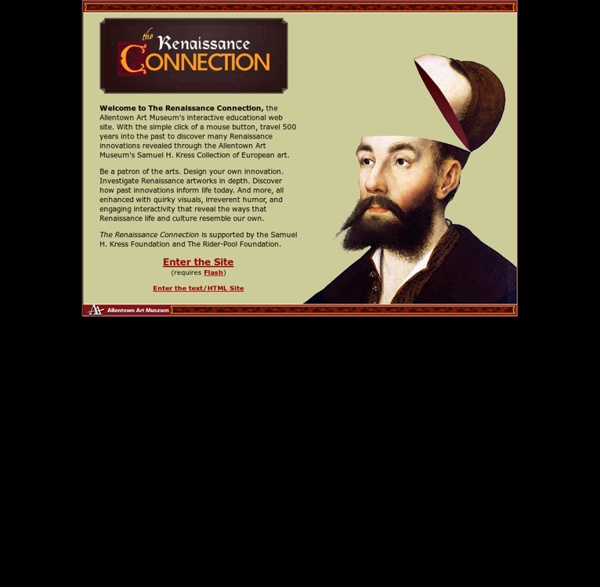



Mapping the Republic of Letters Not Everyone Lived in Castles During the Middle Ages Activity 1. Priests and Monks Review the types of medieval people studied in Activities 1 and 2. Begin group research of this topic by reading together the text found at Religion available through Learner.Org. Now read about medieval monks at Monks and Nuns available through Learner.Org's Middle Ages. Remind the students of the illuminated images they viewed in Activities 1 and 2. The multiple prayer services took place in the church at the abbey, although those monks who were out in the fields simply kneeled and prayed where they were. Assessment Discuss with the students what they have learned about the monks. Activity 2. After reviewing the topics covered in Activity 1, explain that the wealthy people studied thus far represented only a very small fraction of medieval society. Farming You can get a good idea of how the peasants spent their time by viewing the following images from the Book of Hours discussed earlier: Call upon students to describe the activities in each scene. Royalty
hda_ressources Histoire des arts Grands musées internationaux Lexique des peintres, écrivains, sculpteurs… Ressources de proximité En Alsace et dans le Rhin supérieur Domaines artistiques En venteau CRDP d'Alsace En prêtau CRDP d'Alsace Instructions officielles Portail Histoire des Arts - Ministère de la Culture Vidéo : enseigner l'histoire des arts Site principal du CRDP | Mentions légales | Contacts | Droits de l'image et du son | Aide Kids Games, Kids Movies, Kids Music, and More - Yahoo! Kids
Res Obscura medieval Wouldn't it be terrific to travel back in time to explore a castle and see knights in shining armor and beautiful princesses? Just think of all the magnificent sights and heroic tournaments you would witness! But what was it "really" like to live in Medieval Times? In your quest you will discover the world of the feudal system and explore Medieval castles. Your serfdom will begin by watching a few short video clips from the movie Ever After. Are you ready to learn what is kept in a keep, how a morning star is used, or what (besides water) can be found in a moat? Throughout your quest, keep in mind the "big question" you are seeking to answer: What was life "really" like in Medieval Times, and what do we know now that could have made their lives better? Can you believe everything you read on the Internet? After you have completed the activity, go to the Task section to begin your quest. Created by Joan Weathers 6th Grade Teacher North Daviess Elementary School email me
Fiches méthodes pour l'histoire des arts - L'histoire géographie au collège J. Rostand Vous pouvez le consulter à l'adresse suivante : rostand-histoge.over-blog.fr Liste des articles du blog rostand-histoge.over-blog.fr : Voici les catégories dans lesquelles je classe les articles et les documents. planisphère politique : pour les pays planisphère politique vile : pour les villes et les pays planisphère fleuve : pour les fleuves, et vous devrez tracer les massifs montagneux. Pour vous aider à réussir le 1er bilan de compétences de début de 4ème, voici quelques fiches méthodes. Je met à votre disposition 4 chansons des années trentes avec leur texte. ces quatre exemples sont utile à la fois pour la leçon sur la france face à la crise, mais aussi dans l'optique de l'épreuve… Voici le schéma heuristique de berlin. Je mets à votre disposition ces fiches réalisées par les collègues du Collège Clément Janequin. Voici un magnifique lien pour la moyen âge, de nombreux documents. Voici une chanson écrite en 1938 et éditée en séptembre 1939. Pour les Verdi et les Pavaroti .
The FCC Kids Zone Home Page In March 2010, the FCC delivered to Congress a plan to help make sure that all Americans can get high-speed advanced Internet service – otherwise known as “broadband.” Congress asked the FCC to develop this plan, and the FCC went around the country asking different groups of people for their ideas and opinions before putting the plan together. Broadband Internet service lets you use the Internet and Internet-related services at much higher speeds than traditional modems, like a regular telephone line. The FCC’s National Broadband Plan includes ideas on how to use broadband to help the economy grow, to help create jobs, to help educate children, to help protect the public and to help people participate in government processes and get in touch with government services. The FCC’s Plan includes recommendations to solve these problems. Connect 100 million households to affordable fast broadband service.
Ancient Civilizations: Maya Global rating average: 0.0 out of 50.00.00.00.00.0 These websites are about the Mayas and their culture. There are lesson plans, maps, timelines, quizzes, and cartoons. There is information about their culture, government, religion, and more. Includes a link to eTheme resources on Native Americans: Maya and Ancient Western Civilizations. Grades Links Maya Kids This fun site has information about the Mayas, their culture, and where they lived. Education Standards Request State Standards